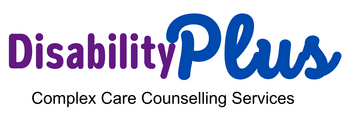
Psychological Adaptation Brain Injuries
This article focuses on the extensive ramifications of acquired brain injuries (ABIs) on individuals, elucidating the diverse cognitive, emotional, and societal tribulations that survivors must contend with.
Stemming from traumatic events and medical problems, ABIs can lead to significant alterations not only in physical faculties but also in psychological health, highlighting the importance of specialist brain injury counselling.
Its not that simple
The psychological aftermath of an ABI is considerable. Individuals struggle with cognitive impairments, emotional dysregulation, and a shift in self-identity. The narrative stresses the importance of psychological adaptation, which is just as critical as physical recovery. It underscores the need for compassionate counselling adept at handling the complex consequences of brain injury.
The repercussions of a brain injury cascade into familial relationships and employment sectors, with changes in family roles and potential job loss or career transitions. The anxiety over prospects, including financial stability and social connections, intensifies the distress for those impacted.

Interventions
A multi-pronged therapeutic strategy is essential for effective ABI management. The article highlights Cognitive Behavioural Therapy (CBT), neuropsychological rehabilitation, and person-centred therapy as integral in addressing the distorted cognitive and behavioural patterns that may emerge. Solution-Focused Brief Therapy (SFBT), Narrative Therapy, psychoeducation, mindfulness-based interventions, and Interpersonal Therapy (IPT) also support recovery and adjustment.
The article cautions against the pitfalls of general therapy, which can result in misdiagnosis and misinterpretation of symptoms, thereby advocating for the expertise of professionals trained in brain injury rehabilitation. These specialists have a nuanced understanding of neuroanatomy and the complex nature of brain injuries, which is crucial for customising therapeutic interventions.

The Psychological and Social Impact of Acquired Brain Injuries
An acquired brain injury is a life-altering occurrence, affecting not just the physical state but also the mental health of an individual with a brain injury. The repercussions are extensive, influencing every part of identity and societal interactions. Cognitive difficulties may impair memory, focus, or executive functions, hindering daily activities or job maintenance.
Emotionally, individuals may traverse mood fluctuations or mourn their pre-injury existence, which can lead to depression or anxiety. Socially, strained relationships and altered dynamics can cause isolation or behavioural misunderstandings. Post-ABI, the psychological terrain is marked by transformation, requiring not just physical healing but profound emotional and cognitive realignment, a journey best undertaken with empathetic, specialist brain injury counselling.

Trauma (ABI)
Acquired brain injuries typically arise from distressing events, for example, traffic collisions & strokes, leaving a deep psychological imprint.
The physical trauma is often accompanied by the psychological shock of the event, potentially resulting in PTSD. Survivors may experience flashbacks or nightmares, heightened anxiety, or a constant state of alert, which complicates the return to normalcy.
Addressing the complex psychological impact necessitates specialist therapeutic support, ensuring counselling for brain injury encompasses both physical and cognitive rehabilitation as well as emotional recovery and resilience.
The seismic shifts an ABI can induce are far-reaching, affecting family dynamics, employment, and future uncertainties.
Following a brain injury, significant changes in cognitive function, emotional regulation, and physical health can disrupt familial balance, necessitating a redefinition of roles and responsibilities.
The primary earner or caregiver might need support, altering the domestic equilibrium. Employment challenges due to cognitive impairments may limit the individual’s identity and introduce economic strain through income loss or employment changes.
Uncertainties about future health, independence, and financial security pose substantial concerns, compounded by fears of social isolation due to personality and capability changes.

Therapeutic Approaches for Brain Injury Rehabilitation
Treating those with brain injuries calls for a versatile and holistic strategy, given the diverse and intricate nature of such injuries. Cognitive Behavioural Therapy (CBT) is essential for addressing post-injury maladaptive thought and behaviour patterns, while neuropsychological rehabilitation focuses on mental deficit recovery.
Person-centred therapy provides a nurturing space, acknowledging the individual’s pace and perspective in recovery, which is critical for addressing the profound personal impact of brain injuries.
Solution-Focused Brief Therapy (SFBT) and Narrative Therapy are valuable for fostering goal-setting and unique narrative construction, both key for individuals redefining their identity post-injury.
Moreover, psychoeducation can be critical in helping individuals and their families understand the nature and implications of brain injury, creating a more supportive environment for recovery.
Mindfulness-based interventions can also benefit by enhancing present-moment awareness and emotional regulation. Interpersonal Therapy (IPT) is beneficial in addressing changes in social and familial roles, helping to navigate interpersonal dynamics affected by brain injury.
The article insists on the importance of specialist therapists in this context. Non-specialist therapy can be detrimental, leading to misdiagnosis and misunderstanding of symptoms, which are nuanced in brain injury cases. Specialist therapists have a profound comprehension of neuroanatomy and the complex symptomatology associated with brain injuries, which is indispensable for designing effective, individualised interventions.

A Model for Specialist Brain Injury Counselling
Our specialist brain injury counselling provides a comprehensive, integrated care model for those with ABIs. The service is designed to support the individual, but it extends to include family members and caregivers, acknowledging the systemic nature of brain injury recovery.
The Imperative for Online Counselling Services in Brain Injury Rehabilitation
In the wake of an acquired brain injury, access to specialist counselling is paramount. However, there exists a stark lack of counsellors equipped with the requisite expertise to support brain-injured clients effectively. The scarcity of such professionals, versed in the intricate tapestry of cognitive, emotional, and physical challenges that accompany such injuries, necessitates an alternative approach to service delivery.
Our transition to online brain injury counselling is not merely a matter of convenience but a critical response to the shortage of trained brain injury counsellors. Geographical barriers often preclude individuals from accessing the care they require, particularly in rural or under-served urban areas where specialist services are not readily available. Our service transcends these limitations, facilitating access to specialist care regardless of location.

Brain Injuries & Mental Health Conclusion
In exploring the profound effects of acquired brain injuries (ABIs) on mental health, this article has highlighted the intricate interplay between cognitive deficits, emotional upheavals, and the subsequent societal challenges that individuals face post-injury.
ABIs are not just medical events but complex occurrences that have a lasting impact on the identity and psychological well-being of those affected.
It has become increasingly evident that brain injury counselling requires a specialist approach, attuned to the nuanced changes in neuroanatomy and the personal experience of each survivor.
Managing the aftermath of an ABI is an intricate and multi-faceted endeavour. The road to recovery is not solely about physical rehabilitation but also entails a comprehensive realignment of one’s mental health, demanding a bespoke, empathetic, and informed approach to therapy.
This article posits that the future of effective ABI rehabilitation lies in expanding specialist counselling services, including the broadening of online support options, to provide a robust network of care for those navigating the challenging journey towards recovery.
Psychological Adaptation Brain Injuries
This article delves into the profound and comprehensive impact of acquired brain injuries (ABIs) on individuals, detailing the cognitive, emotional, and social challenges that survivors face. ABIs, often resulting from traumatic incidents such as road accidents or strokes, not only alter a person’s physical abilities but also profoundly affect their psychological state, necessitating specialised therapeutic support.
The psychological effects post-ABI are substantial, with many individuals grappling with altered cognitive functions, emotional regulation, and a transformed sense of identity. The article emphasises the deep psychological adjustments that are as crucial as physical healing, pointing out the necessity of empathetic counselling that can navigate the multifaceted repercussions of brain injury.
A brain injury’s ripple effect extends to family dynamics and employment, with shifts in family roles and potential job loss or the need for career changes. The uncertainty about the future, including financial security and social relationships, contributes to the distress experienced by those affected.
Effective treatment for ABI requires a multifaceted approach. Cognitive Behavioural Therapy (CBT), neuropsychological rehabilitation, and person-centred therapy are highlighted as key modalities in addressing the distorted thinking and behavioural patterns that can arise. Solution-Focused Brief Therapy (SFBT), Narrative Therapy, psychoeducation, mindfulness-based interventions, and Interpersonal Therapy (IPT) are also identified as beneficial for promoting recovery and adjustment.
The article points out the pitfalls of non-specialised therapy, such as misdiagnosis and misinterpretation of symptoms, underlining the importance of professionals trained in brain injury rehabilitation. Specialists in this field possess a comprehensive understanding of neuroanatomy and the complexities of brain injury, ensuring that therapeutic interventions are appropriately tailored.
Lastly, the article acknowledges the scarcity of specialist brain injury mental health services, underscoring the urgent need for greater availability. DisabilityPlus is presented as an exemplar service that offers holistic, tailored counselling for ABI survivors, advocating for the integrated care model that encompasses not just the individual but also family and caregivers.
In summary, the article makes a compelling case for the necessity of specialised counselling services like DisabilityPlus to address the intricate challenges faced by individuals with ABIs and underscores the urgent need to expand access to these critical services.
Acquired brain injuries can be a seismic event in a person's life, not just physically but also from a psychological perspective
The impact is often profound and multifaceted, touching upon every aspect of an individual’s sense of self and place in the world. Cognitively, there might be struggles with memory, attention, or executive functions, which can alter one’s ability to perform daily tasks or maintain employment.
Emotionally, individuals may experience swings, from frustration to apathy, or confront feelings of loss for their pre-injury life, leading to challenges such as depression or anxiety. Socially, relationships may undergo strain as roles and dynamics shift, potentially leading to isolation or misunderstood behavioural changes.
The psychological landscape after an acquired brain injury is one of change, requiring not just physical healing but deep emotional and cognitive adjustment, a path best navigated with empathetic, specialised counselling support.


Trauma:
Acquired brain injuries often stem from traumatic events, such as road traffic accidents or medical emergencies like strokes, that leave a lasting imprint on a person’s psychological well-being.
The suddenness and severity of these incidents can be harrowing, with the physical trauma accompanied by the psychological shock of the event, which can manifest as Post-Traumatic Stress Disorder (PTSD).
Individuals may relive the trauma through flashbacks or nightmares, endure heightened anxiety, or experience a persistent state of hyperarousal, making it difficult to return to a sense of normalcy. The intersection of coping with a new set of cognitive and physical challenges while also dealing with the psychological aftermath of trauma necessitates a specialised therapeutic approach.
Such support must recognise and address the layered complexity of the psychological impact, ensuring that counselling for brain injury not only facilitates physical and cognitive rehabilitation but also provides a pathway to emotional healing and resilience.
A brain injury can precipitate profound changes in a person's life, often with far-reaching implications for their family dynamics, employment prospects, and concerns about the future.
In the wake of a brain injury, the individual may encounter significant shifts in their cognitive abilities, emotional regulation, and physical capabilities.
These changes can alter the family equilibrium, as roles and responsibilities may need to be re-negotiated. The person who once was the primary breadwinner or caregiver might now require support themselves, leading to a re-distribution of duties within the home.
Family members may also have to become caregivers or advocates, roles they may not have expected or been prepared for, which can introduce stress, strain relationships, and affect the emotional well-being of all involved.

Employment is another critical area impacted by brain injury. Cognitive impairments can hinder job performance, making tasks that were once routine, challenging or impossible.
This not only affects the injured individual’s sense of identity and self-worth but also brings financial strain due to loss of income the need for reduced hours or a change in employment.
Accommodations may be necessary for the individual to continue working if working remains a viable option. For some, retraining for a different role or profession may be required, while others may face the prospect of long-term unemployment.
Future & Aspirations
The uncertainty about the future can be one of the most distressing aspects post-injury. Concerns about long-term health, the ability to regain independence, financial security, and the potential for further medical complications can loom large.
For younger individuals, questions about relationships, the possibility of starting a family, and their long-term aspirations can be sources of worry. There may also be fears about the risk of social isolation as friendships and social networks can be affected by the changes in the individual’s personality and abilities.
Overall, a brain injury can act as a pivotal event that redefines a person’s trajectory, touching every aspect of their life and necessitating an adjustment of expectations and plans for the future. The road to adaptation is typically a collaborative one, requiring understanding and flexibility from the individual, their family, employers, and society at large.
Acquired Brain Injury Mental Health Counselling Modes
Treating individuals with brain injuries requires a comprehensive and adaptable approach, given the varied and complex effects such injuries can have. Cognitive Behavioural Therapy (CBT) is crucial for tackling distorted thinking and behavioural patterns that may arise post-injury, while neuropsychological rehabilitation targets the recovery of specific cognitive deficits.
Person-centred therapy offers a supportive environment that honours the individual’s own pace and perspective in recovery, which can be essential in dealing with the profound personal impact of brain injuries.
Solution-Focused Brief Therapy (SFBT) and Narrative Therapy are particularly valuable, promoting goal orientation and personal meaning-making, both of which are pivotal for individuals redefining their sense of self in the aftermath of an injury.


Further, psychoeducation equips both individuals and their support networks with a deeper understanding of brain injury, which is instrumental in managing expectations and engaging in the rehabilitation journey.
Mindfulness-based interventions and Interpersonal Therapy (IPT) also play significant roles; mindfulness practices aid in emotional regulation and stress reduction, while IPT focuses on improving social relationships, which can be strained by the effects of a brain injury.
Finally, an integrative or holistic approach synthesises elements from various therapeutic modalities to construct a tailored and dynamic treatment plan.
This multi-modal approach ensures that the therapy addresses the broad spectrum of challenges faced by individuals with brain injuries, thus fostering the best possible environment for recovery and adjustment.
The importance of psychological therapy provided by professionals specifically trained to support individuals with brain injuries cannot be overstated.
A brain injury is a complex medical condition that not only affects cognitive functions but also an individual’s emotional stability, personality, and behaviour.
Therapists without specialised training in this area may not fully comprehend the intricacies of brain injury, which can lead to significant pitfalls in treatment and support.
Specilists
Professionals trained in brain injury rehabilitation are equipped with a detailed understanding of neuroanatomy, the various types and impacts of brain injuries, and the potential for neuropsychological complications.
They are adept at recognising and addressing the subtle nuances that distinguish brain injury symptoms from those of other psychological disorders. This expertise is crucial in devising effective therapeutic interventions that account for cognitive deficits and altered processing abilities.
In contrast, counsellors without this specialised training may inadvertently misinterpret symptoms, possibly attributing them to psychological causes rather than neurological ones.
Such misdiagnosis can lead to ineffective treatment plans that not only fail to address the root of the issue but may also exacerbate the individual’s frustrations, leading to a sense of misunderstanding and isolation. There’s also the risk of setting unrealistic goals or employing strategies that overlook the client’s cognitive limitations, resulting in further demoralisation and decreased motivation.
Additionally, the pace and structure of therapy sessions need to be carefully tailored to the cognitive endurance of the brain injury survivor. Counsellors inexperienced in this field might not recognise the signs of cognitive fatigue and could push the client beyond their limits, which can be counterproductive and potentially harmful.
Another significant pitfall is the mismanagement of the therapeutic relationship. Individuals with brain injuries may require more patience and affirmation due to their vulnerabilities. A therapist without the necessary sensitivity and understanding might fail to provide the secure and supportive environment that is essential for effective therapy.
In essence, the rehabilitation journey for those with brain injuries is unique and requires a therapist who is not only empathetic and patient but also highly knowledgeable about the specific challenges posed by brain injuries. The absence of such expertise can lead to a therapy experience that is, at best, ineffective, and at worst, detrimental to the individual’s pathway to recovery.
The Challenge of Availability
Specialist brain injury mental health services are not as widespread as they should be, considering the number of individuals affected by brain injuries each year. Access to qualified specialists who can offer tailored brain injury counselling is even rarer, further exacerbated by geographical constraints. This scarcity underscores the necessity of innovative solutions to meet the demand for these essential services.
Specialist counselling with DisabilityPlus is often the preferred choice for our clients because it provides a tailored, holistic approach that recognises the intricate and multi-dimensional nature of recovery from an acquired brain injury.
The integrated care model utilises interdisciplinary teams of experts, ensuring that all aspects of an individual’s well-being are addressed—from the physical to the psychological. With DisabilityPlus, clients benefit from counsellors who have specialised knowledge in navigating the cognitive, behavioural, and emotional complexities specific to brain injuries.
Additionally, the support extends beyond the individual to include family and caregivers, fostering a comprehensive support system that is essential for effective rehabilitation and reintegration into the community.
This depth of understanding and support is why DisabilityPlus remains a preferred provider for those seeking thorough, compassionate, and informed brain injury counselling.

Brain Injury Mental Health (Counselling & Psychotherapy)
Psychological Adaptation Brain Injuries
This article focuses on the extensive ramifications of acquired brain injuries (ABIs) on individuals, elucidating the diverse cognitive, emotional, and societal tribulations that survivors must contend with.
Stemming from traumatic events and medical problems, ABIs can lead to significant alterations not only in physical faculties but also in psychological health, highlighting the importance of specialist brain injury counselling.
The psychological aftermath of an ABI is considerable. Individuals struggle with cognitive impairments, emotional dysregulation, and a shift in self-identity. The narrative stresses the importance of psychological adaptation, which is just as critical as physical recovery. It underscores the need for compassionate counselling adept at handling the complex consequences of brain injury.
The repercussions of a brain injury cascade into familial relationships and employment sectors, with changes in family roles and potential job loss or career transitions. The anxiety over prospects, including financial stability and social connections, intensifies the distress for those impacted.
Interventions
A multi-pronged therapeutic strategy is essential for effective ABI management. The article highlights Cognitive Behavioural Therapy (CBT), neuropsychological rehabilitation, and person-centred therapy as integral in addressing the distorted cognitive and behavioural patterns that may emerge. Solution-Focused Brief Therapy (SFBT), Narrative Therapy, psychoeducation, mindfulness-based interventions, and Interpersonal Therapy (IPT) also support recovery and adjustment.
The article cautions against the pitfalls of general therapy, which can result in misdiagnosis and misinterpretation of symptoms, thereby advocating for the expertise of professionals trained in brain injury rehabilitation. These specialists have a nuanced understanding of neuroanatomy and the complex nature of brain injuries, which is crucial for customising therapeutic interventions.
Trauma (ABI)
Acquired brain injuries typically arise from distressing events, for example, traffic collisions & strokes, leaving a deep psychological imprint.
The physical trauma is often accompanied by the psychological shock of the event, potentially resulting in PTSD. Survivors may experience flashbacks or nightmares, heightened anxiety, or a constant state of alert, which complicates the return to normalcy.
Addressing the complex psychological impact necessitates specialist therapeutic support, ensuring counselling for brain injury encompasses both physical and cognitive rehabilitation as well as emotional recovery and resilience.
The Psychological and Social Impact of Acquired Brain Injuries
An acquired brain injury is a life-altering occurrence, affecting not just the physical state but also the mental health of an individual with a brain injury. The repercussions are extensive, influencing every part of identity and societal interactions. Cognitive difficulties may impair memory, focus, or executive functions, hindering daily activities or job maintenance.
Emotionally, individuals may traverse mood fluctuations or mourn their pre-injury existence, which can lead to depression or anxiety. Socially, strained relationships and altered dynamics can cause isolation or behavioural misunderstandings. Post-ABI, the psychological terrain is marked by transformation, requiring not just physical healing but profound emotional and cognitive realignment, a journey best undertaken with empathetic, specialist brain injury counselling.
The seismic shifts an ABI can induce are far-reaching, affecting family dynamics, employment, and future uncertainties.
Following a brain injury, significant changes in cognitive function, emotional regulation, and physical health can disrupt familial balance, necessitating a redefinition of roles and responsibilities.
The primary earner or caregiver might need support, altering the domestic equilibrium. Employment challenges due to cognitive impairments may limit the individual’s identity and introduce economic strain through income loss or employment changes.
Uncertainties about future health, independence, and financial security pose substantial concerns, compounded by fears of social isolation due to personality and capability changes.
Therapeutic Approaches for Brain Injury Rehabilitation
Treating those with brain injuries calls for a versatile and holistic strategy, given the diverse and intricate nature of such injuries. Cognitive Behavioural Therapy (CBT) is essential for addressing post-injury maladaptive thought and behaviour patterns, while neuropsychological rehabilitation focuses on mental deficit recovery.
Person-centred therapy provides a nurturing space, acknowledging the individual’s pace and perspective in recovery, which is critical for addressing the profound personal impact of brain injuries.
Solution-Focused Brief Therapy (SFBT) and Narrative Therapy are valuable for fostering goal-setting and unique narrative construction, both key for individuals redefining their identity post-injury.
Moreover, psychoeducation can be critical in helping individuals and their families understand the nature and implications of brain injury, creating a more supportive environment for recovery.
Mindfulness-based interventions can also benefit by enhancing present-moment awareness and emotional regulation. Interpersonal Therapy (IPT) is beneficial in addressing changes in social and familial roles, helping to navigate interpersonal dynamics affected by brain injury.
The article insists on the importance of specialist therapists in this context. Non-specialist therapy can be detrimental, leading to misdiagnosis and misunderstanding of symptoms, which are nuanced in brain injury cases. Specialist therapists have a profound comprehension of neuroanatomy and the complex symptomatology associated with brain injuries, which is indispensable for designing effective, individualised interventions.
A Model for Specialist Brain Injury Counselling
Our specialist brain injury counselling provides a comprehensive, integrated care model for those with ABIs. The service is designed to support the individual, but it extends to include family members and caregivers, acknowledging the systemic nature of brain injury recovery.
The Imperative for Online Counselling Services in Brain Injury Rehabilitation
In the wake of an acquired brain injury, access to specialist counselling is paramount. However, there exists a stark lack of counsellors equipped with the requisite expertise to support brain-injured clients effectively. The scarcity of such professionals, versed in the intricate tapestry of cognitive, emotional, and physical challenges that accompany such injuries, necessitates an alternative approach to service delivery.
Our transition to online brain injury counselling is not merely a matter of convenience but a critical response to the shortage of trained brain injury counsellors. Geographical barriers often preclude individuals from accessing the care they require, particularly in rural or under-served urban areas where specialist services are not readily available. Our service transcends these limitations, facilitating access to specialist care regardless of location.

Brain Injuries & Mental Health Conclusion
In exploring the profound effects of acquired brain injuries (ABIs) on mental health, this article has highlighted the intricate interplay between cognitive deficits, emotional upheavals, and the subsequent societal challenges that individuals face post-injury.
ABIs are not just medical events but complex occurrences that have a lasting impact on the identity and psychological well-being of those affected.
It has become increasingly evident that brain injury counselling requires a specialist approach, attuned to the nuanced changes in neuroanatomy and the personal experience of each survivor.
Managing the aftermath of an ABI is an intricate and multi-faceted endeavour. The road to recovery is not solely about physical rehabilitation but also entails a comprehensive realignment of one’s mental health, demanding a bespoke, empathetic, and informed approach to therapy.
This article posits that the future of effective ABI rehabilitation lies in expanding specialist counselling services, including the broadening of online support options, to provide a robust network of care for those navigating the challenging journey towards recovery.
Free Funding
Based on Your Exceptional Circumstances
♣ Applications 18+
♣ Most regions in the UK
♣ TBI & ABI
♣ Free Assessment Session
Other Referrals
♣ Professional Organisations
♣ Mental Health Providers
♣ Friends & Family
♣ Carers
♣ GP’s





I don’t understand how you’re not more popular than you are now. You’re very smart and know so much about this topic that I could imagine it from many angles. It’s like men and women aren’t interested until it’s something to do with Woman gaga. Your stuffs nice, keep it up.